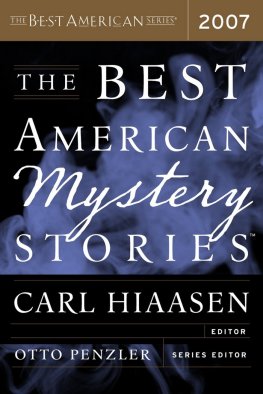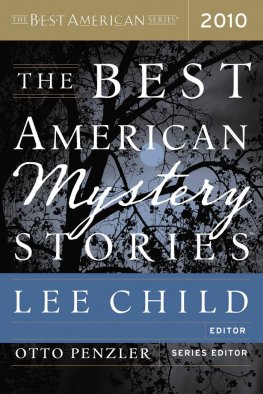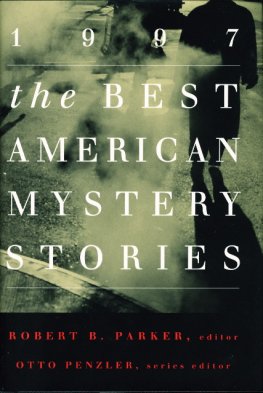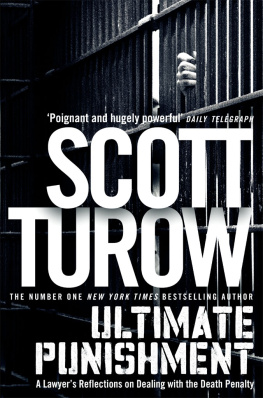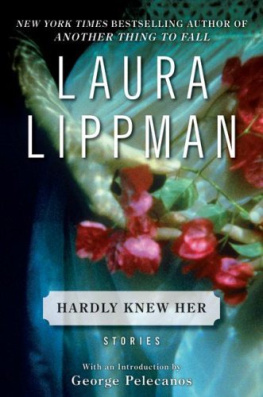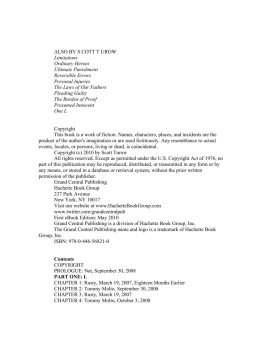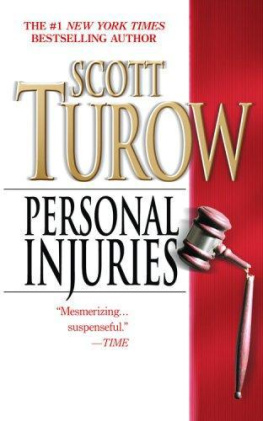The Best American Mystery Stories 2006
Now that Best American Mystery Stories has reached its first decade, I thought Id go back and reread the forewords Id written for the first nine to see if I had anything original to say (which would be a major coup for me at any time). Well, I dont. What I do realize is how much has changed in ten years and how much has not.
Among the changes are that I (stupidly) crowed about not having a computer for the first few volumes. I do now and couldnt live without it. Even though I am a card-carrying Luddite and have a certificate from the Lead Pencil Society on my wall, I should have realized sooner that a computer would help me to be a better correspondent and better able to do research.
It almost seems quaint to read in that first volume that I looked at five hundred stories. My invaluable colleague, Michele Slung, now scans as many as 1,500 mystery stories and double that number of pieces of fiction to determine whether they are eligible for consideration for this genre-specific volume. Dont ask me how she does it; Ive never known how she could read that quickly, make such good decisions, and have such extraordinary retention.
The reasons for these dramatically increased numbers are the proliferation of electronic magazines, or e-zines, and the greater access we have to small literary publications.
Literary periodicals are among the most thankless efforts on the planet, as well as the most optimistic. Most are run on a volunteer basis or for wages so miniscule that sharecroppers would be outraged and insulted if given the same pay. They often have tiny circulations of a few hundred copies, and the staff spends as much time fundraising as it does producing these handsomely made books.
Ten years ago, it was a struggle to find these journals. I didnt know where to find them all, didnt know who ran them, and didnt know how to get access to their stories. Further, I have to admit that not everyone involved was as cooperative as one might have wished. The common response to requests for a copy of the magazine was that it didnt publish mystery stories (you could almost hear the sneer jump off the page). That has largely changed, as every edition of this series has featured large numbers of stories culled from the pages of so many of these worthwhile publications. Story Quarterly, The Harvard Review, The Ontario Review, The Baltimore Review, McSweeneys, TriQuarterly, The Gettysburg Review, Ploughshares, The Chattahoochee Review, Glimmer Train, Epoch, Eureka Literary Magazine, Puerto del Sol, Washington Square, and The Georgia Review are just a few of the journals from which mystery stories have been honored. I am extremely grateful to the editors for their dedication and assistance.
As time goes by, it becomes more apparent that each volume of Best American Mystery Stories is a collaboration. The favorite reading of Nat Sobel, the greatest agent in the world, is literary journals, and when he sends a story to me it goes to the top of the pile because he knows a real writer when he reads one. Friends from all parts of the country call or e-mail or send me stories, wanting to be sure I didnt miss something important. My editors at Houghton Mifflin are a dream come true. Never, not once, have they hinted that theyd like more best-selling writers in the book, or a different demographic mix, or stories that would appeal more to older or younger readers, East Coast readers or Southern readers or California readers, male readers or female readers, intelligent readers or those who like it when cuddly kittens solve the crime. Because they have been publishing the most honored and successful anthology in the United States, Best American Short Stories, for more than ninety years, they understand its about the excellence of the writing, that nothing else matters, which is what my guest editors and I have been trying to provide.
Speaking of whom, the contribution of these superb writers should never be underestimated. Only if you, too, are a celebrity can you begin to understand the number of requests made of major authors. Speak to writers groups, schools, fundraisers, and publishers events. Go on a book tour and do interviews for radio, television, newspapers, and magazines, as well as in-store signings at the chains and dont forget the independents. Read this book and provide a quote for the dust jacket. Write a short story for my anthology or an introduction for my book. Write faster, since we have to have a book every year. Then go on a book tour in England, France, Germany, and Australia. And why havent you finished reading your proofs yet? Its grueling, even though it sounds like fun, and frequently is fun. No one is suggesting that being a successful writer is harder work than being a small farmer, a steelworker, or a fireman, but the time drains are enormous. What makes it worse, of course, is that every one of the authors who agreed to be guest editors for the series are really nice people. No kidding they really are swell. They hate to say no, so find themselves up to their eyeballs with demands that would sink lesser people.
So, in all gratitude and humility, sincere thanks to Robert B. Parker, the first guest editor, and to the cherished friends who followed: Sue Grafton, Ed McBain (the pseudonym of my dear friend Evan Hunter, who sadly passed away last year), Donald E. Westlake, Lawrence Block, James Ellroy, Michael Connelly, Nelson DeMille, Joyce Carol Oates and, of course, one of the finest gentlemen Ive ever had the pleasure to know, Scott Turow.
This brings me to an embarrassing confession over which I had no control. The astute reader (and that includes one and all who were sharp enough to add this volume to their libraries) will notice that there are five stories (out of twenty-one) from a single volume. The lamentable fact is that the book, Dangerous Women, happens to have been edited by, ah, me. It was my mission to convince as many outstanding writers as possible that it was a good idea to write a story about a femme fatale for this book, and I appear to have succeeded too well. When Mr. Turow selected these stories, I demurred, since l am not a complete idiot and recognize the concept of conflict of interest. He pointed out that the best stories of the year were supposed to go into this volume, regardless of who commissioned it, and that pretty much ended the discussion. Two of the stories, Andrew Klavans Her Lord and Master and Jeffery Deavers Born Bad, were nominated for the Edgar Allan Poe award, and I cannot believe that if you read the stories by Elmore Leonard, Ed McBain, and Walter Mosley that you could think them unworthy. Therefore, Id like to go on record and say that if you see this as a problem, blame the authors for having written too well.
As relentlessly as I work at it, there is always the possibility that I will miss a story, so if you are an author, an editor, a publisher or an interested observer, please feel free to send recommendations to me. (Almost) full disclosure: after 28 years in one location, my bookshop moved in the fall of 2005 and, in all the chaos, an anthology (best left unnamed, lest the editor decide to come after me with an axe, which may be extreme but would have some justification) was overlooked. I am confident that a couple of stories would have received serious consideration for this collection and Im sick about it. So please, wherever a good mystery story may appear, Ill be delighted to know about it.
Here are the guidelines: any mystery story (defined as any work of fiction in which a crime or the threat of a crime is integral to the theme or the plot) published first in the United States or Canada during the calendar year 2006 is eligible. It must be submitted either as a complete periodical or anthology, or a tear sheet with the name and address of the publication or the editor. If it first appeared in electronic format, it must be submitted in a hard copy, together with the issue number of the e-zine and contact information. Original stories are not eligible.

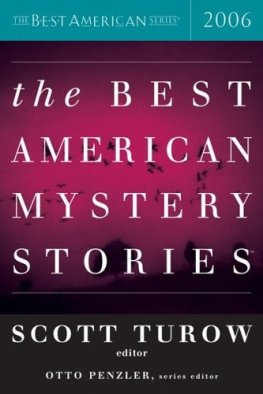

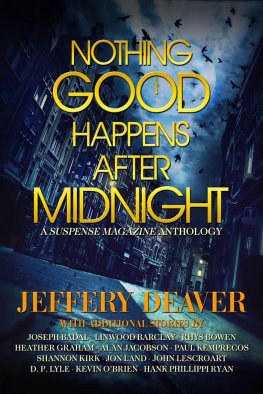

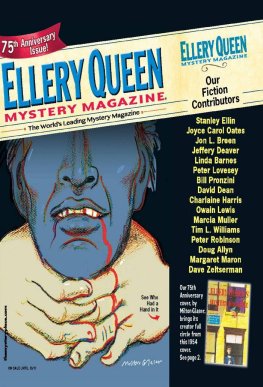
![Dzheffri Diver - Where the Evidence Lies [A Lincoln Rhyme Short Story]](/uploads/posts/book/875547/thumbs/dzheffri-diver-where-the-evidence-lies-a-lincoln.jpg)
